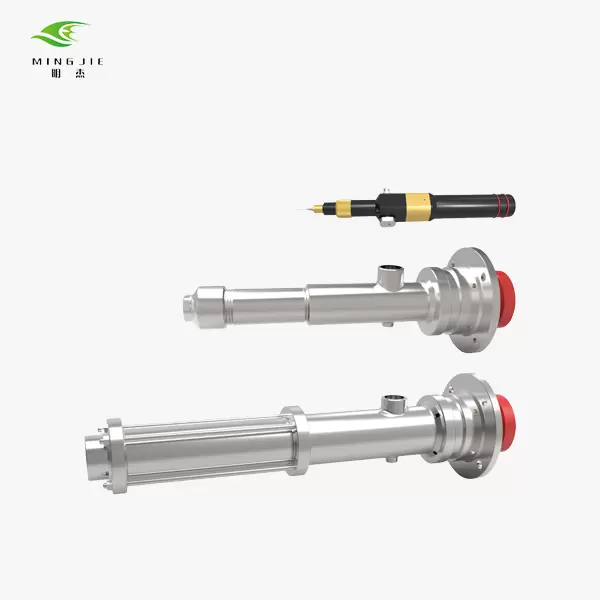What is a Progressive Cavity Pump?
A progressive cavity pump, sometimes shortened to "pc pump", is a type of positive displacement pump that uses rotating screw shaped progressing cavities to pump fluids. It consists of a rotor which has one or more helical lobes and an elastomer stator which also has multiple lobes. As the rotor turns within the stator, cavities form between the two and are moved progressively from the inlet to the outlet, displacing the fluid inside them. Today, we'll explain why use progressive cavity pump? Progressive cavity pumps have certain advantages over other types of pumps:
Why Mingjie Chose Progressive Cavity Pump for Their Application
Mingjie works in the oil and gas industry, transferring a variety of fluids like drilling mud, fracturing fluid, crude oil, etc. through pipelines over long distances. They were earlier using centrifugal pumps for this application but faced some issues:
Flow Rate Fluctuations
Centrifugal pumps cannot regulate the flow rate very well if the resistance in the pipeline changes due to factors like pipeline clogging or change in elevation. This resulted in inefficient pumping.
Shear Sensitive Fluids
The high-speed rotation of centrifugal pumps imparted high shear forces on the pumped fluids, damaging shear sensitive fluids like fracturing fluid.
Cavitation Issues
At high pressures or low flows, centrifugal pumps were prone to cavitation which reduced pump efficiency and life.
Maintenance Issues
Centrifugal pumps need frequent maintenance and wear parts replacement due to dynamic seals, bearings, impellers etc. This increased downtime. After evaluating various pump types, Mingjie chose progressive cavity pumps to overcome the above issues:
Why Progressive Cavity Pumps Suit Mingjie's Needs?
Constant Flow Rate
Progressive cavity pumps can maintain a nearly constant flow rate even with changes in resistance thanks to the use of one or more progressing cavities instead of impellers. This ensured efficient pumping.
Low Shear Pump
The rotating screw shape of progressive cavity pumps impart much lower shear forces compared to centrifugal pumps, protecting shear sensitive fluids.
Cavitation Free
Being positive displacement pumps, progressive cavity pumps can generate high pressures and are immune to problems like cavitation even at low flows or high pressures.
Low Maintenance
Progressive cavity pumps have fewer moving parts like a single eccentric rotating shaft with the closest tolerances being the rotor-stator clearance. This reduced maintenance requirements.
Abrasive Slurry Pumping
The wraparound flexible design of progressive cavity pumps makes them suitable for reliably pumping abrasive slurries which was a major requirement for Mingjie.
Remote Monitoring
Modern progressive cavity pumps come equipped with sensors and telemetry systems allowing remote monitoring of parameters like flow rate, pressure, temperature etc. This enabled proactive maintenance.
Performance Benefits for Mingjie
By switching to progressive cavity pumping technology from the local pump manufacturer, Mingjie gained significant performance advantages:
Increased Uptime
Reliable operation and reduced maintenance downtime increased asset utilization.
Process Optimization
Constant pressures and flows optimized downstream processes like fracturing operations.
Energy Savings
Positive displacement action requires lower energy compared to centrifugal pumps.
Longer Lifecycle
Minimal wear parts and shear-free pumping extended pump lifecycle, reducing lifecycle costs.
Critical Application Support
24/7 service support for critical offshore pumping applications increased confidence in operations. In conclusion, by choosing progressive cavity pumping technology specifically suited to their application needs, Mingjie gained significant performance, reliability and economic advantages over earlier pump types. This is a right example of focusing on core competencies through the correct technology selection.
Taking Pump Selection Seriously
While pumps may be considered as simple machines, selecting the appropriate type considering multiple application parameters can significantly impact process performance and profitability. Mingjie took pump selection seriously by conducting a thorough evaluation of their requirements and available pump technologies before zeroing in on progressive cavity pumps. Other companies often take shortcuts by not fully understanding application needs or sticking to standardized pump choices. This can backfire in terms of increased total cost of ownership. A few hours spent in identifying actual field requirements and carefully assessing technical capabilities of different pump types against those needs could potentially save thousands in unexpected repair costs and lost revenues over the pump lifetime. Mingjie's success exemplifies benefits of making well-informed pump choices. Their continuous consultations with the equipment OEM additionally ensured resolution of even minor queries, avoiding post-purchase surprises. With industries increasingly optimization focused, proper pump selection will become all the more important for maximizing efficiencies in diverse applications.



